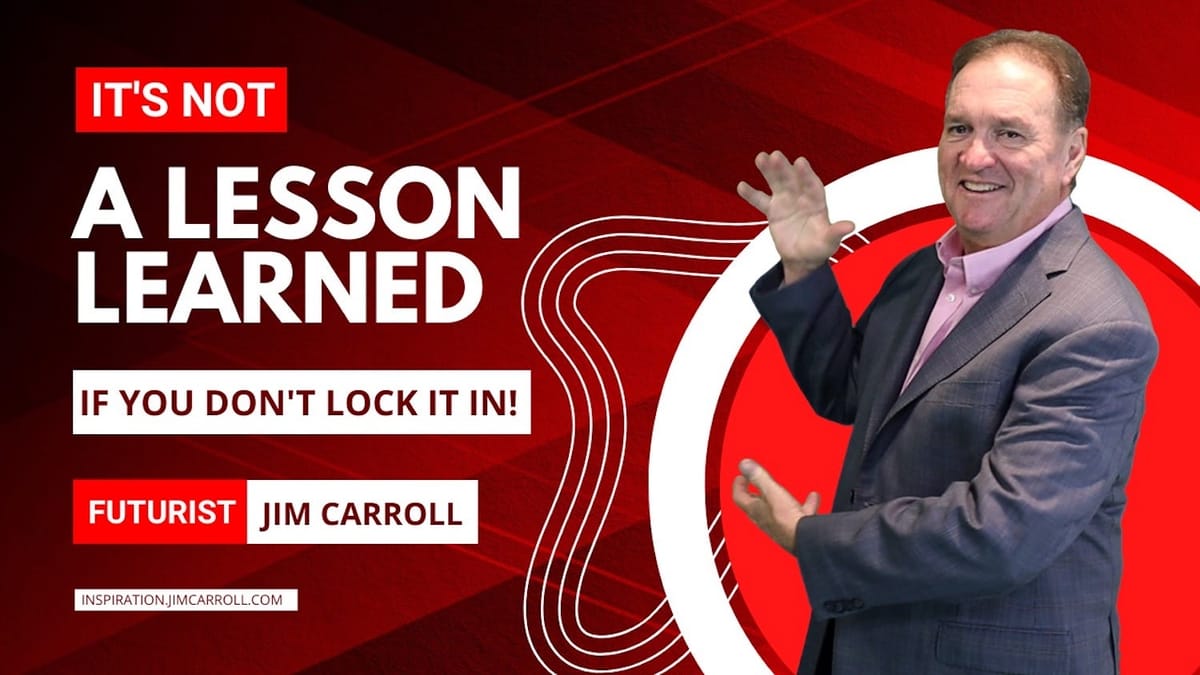Folks don't want to talk about the pandemic anymore, but we should, for despite all the awful things that happened, and the massive divisions it has caused in society, one thing is clear: the way that organizations organize, learners learn, science sciences, and experts' expertise, has forever changed.
We learned a tremendous number of lessons as to how to do things better, faster, and with more insight than ever before, and that's why trend #15 of my "23 Trends for 2023" is Locking in Lessons Learned.
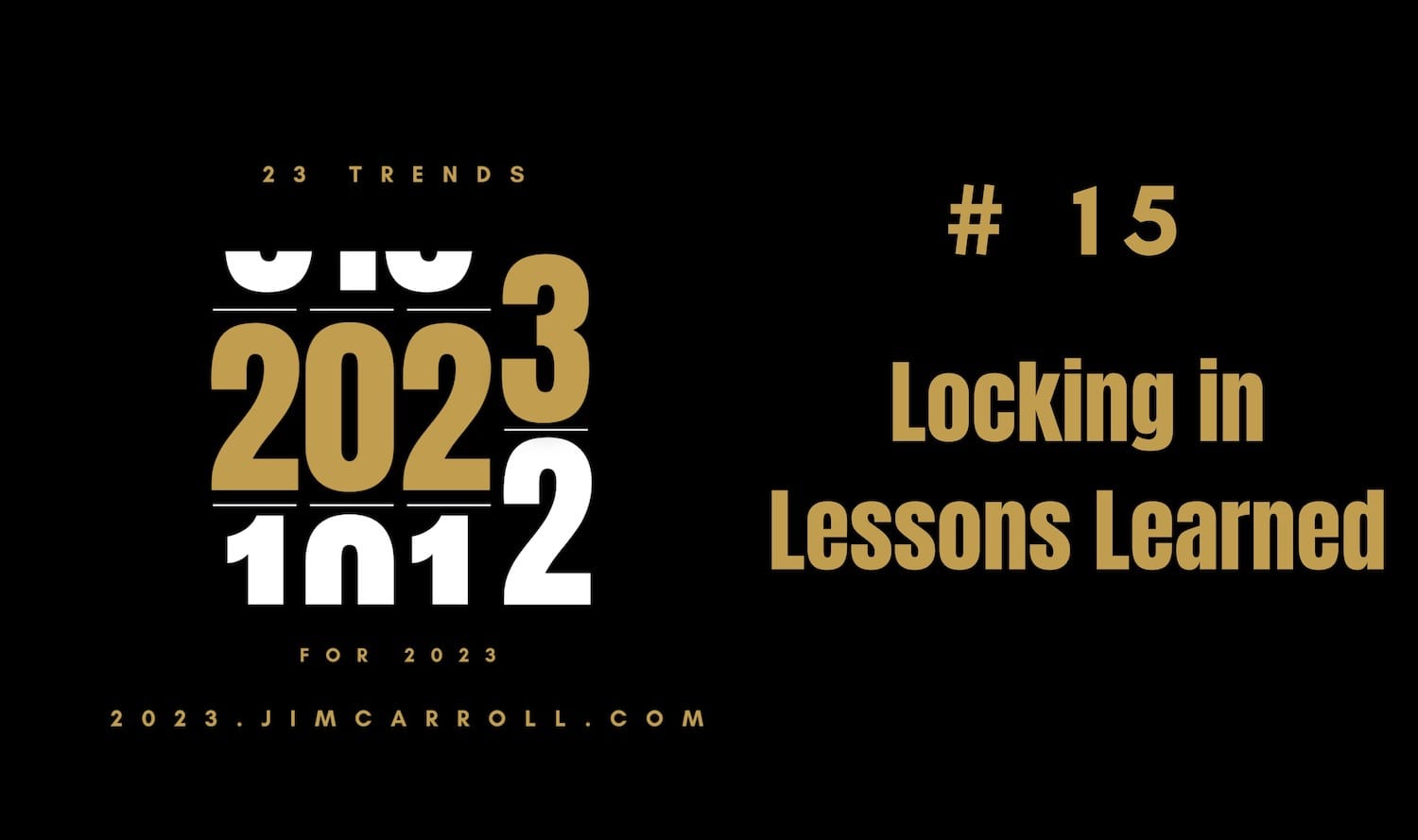
What I am now noticing among the inquiries by CEOs and senior executives for events in 2023 is along the lines of: "our organizations changed during the pandemic - in some ways for the better. How do we capitalize on what we've learned?" In other words, how do we lock them in?
I started capturing this on stage early in my return to in-person events; here's a clip from an event in Detroit last year where I was summarizing the lessons learned.
This goes to one of my key points - that the pandemic accelerated the goal of many organizations to focus on 'digital transformation - that is, how do we align our workforce, supply chain, operating methodologies, and more to take advantage of the opportunities that widespread connectivity presents us. Organizations have talked about this goal for years - the pandemic simply accelerated the trend to a HUGE degree. I remember seeing this on Twitter early into the pandemic.
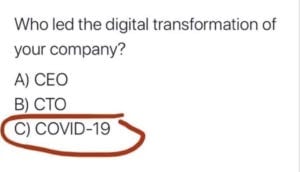
The real impact of covid on business? We’ve learned to operate at speed, and there is no going back! Consider the reality of what we have learned through these remarkable times:
- we compressed 10 years of change into but 6 months
- the result is that major trends accelerated
- such that organizations learned something new about speed!
- and agility and flexibility became critical!
- the impact is that business models shifted faster
- as people become more adaptable to new interaction methods!
- the attitude ‘it can’t be done!’ disappeared
- and decision-making paralysis disappeared
- a slow organizational structure was put under a microscope
- old barriers to new ideas disappeared
- and getting it done became the rallying cry!
And now? Organizations are busy learning how to keep what they've learned - how can we sustain the momentum, and lock in these gains?
The same thing happened in the world of science and healthcare. I grabbed this screenshot in mid-April 2020 - it was one of many emergency room doctors I was following online because I realized that small communities of specialists were forming online in order to share insight on how to deal with fast-moving and entirely unknown new circumstances. Something profound was happening in the world of medical science, and I wanted to understand it.
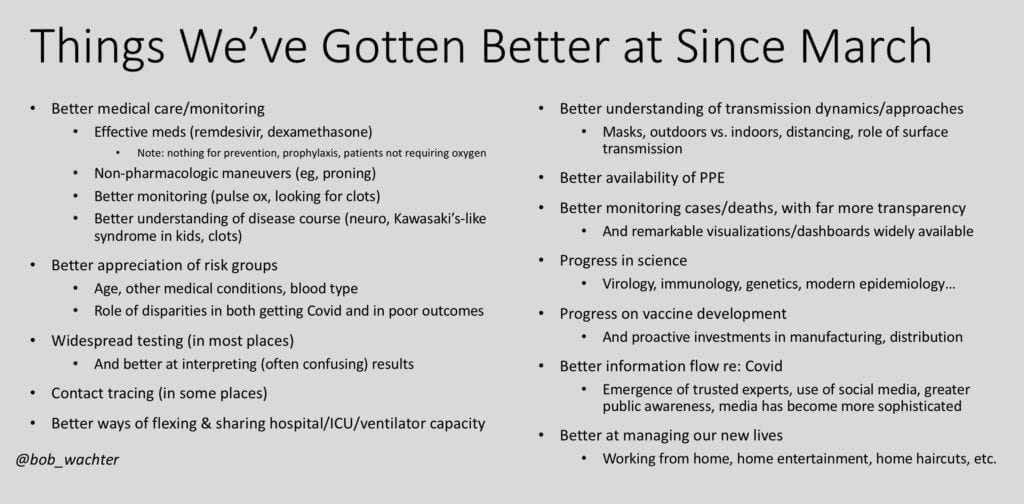
Today, these small micro-communities still exist in multiple forums, and the manner by which medical and healthcare specialists share insight at speed has forever changed our world going forward.
But it's not just information sharing - the very nature of R&D has forever changed. Overall, the entire world of medical, pharmaceutical, and science technology accelerated to a ridiculous degree during the pandemic - I often share the statistic that while the volume of medical knowledge was doubling every 8 years before Covid, months into the pandemic it was doubling every 78 days.
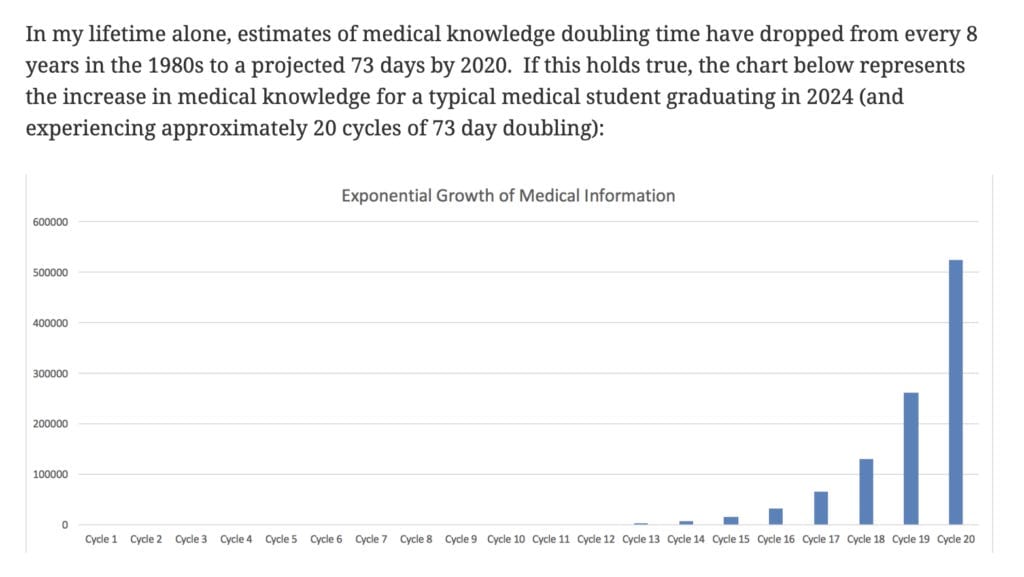
The overall impact was that the pace of innovation accelerated: consider this post.
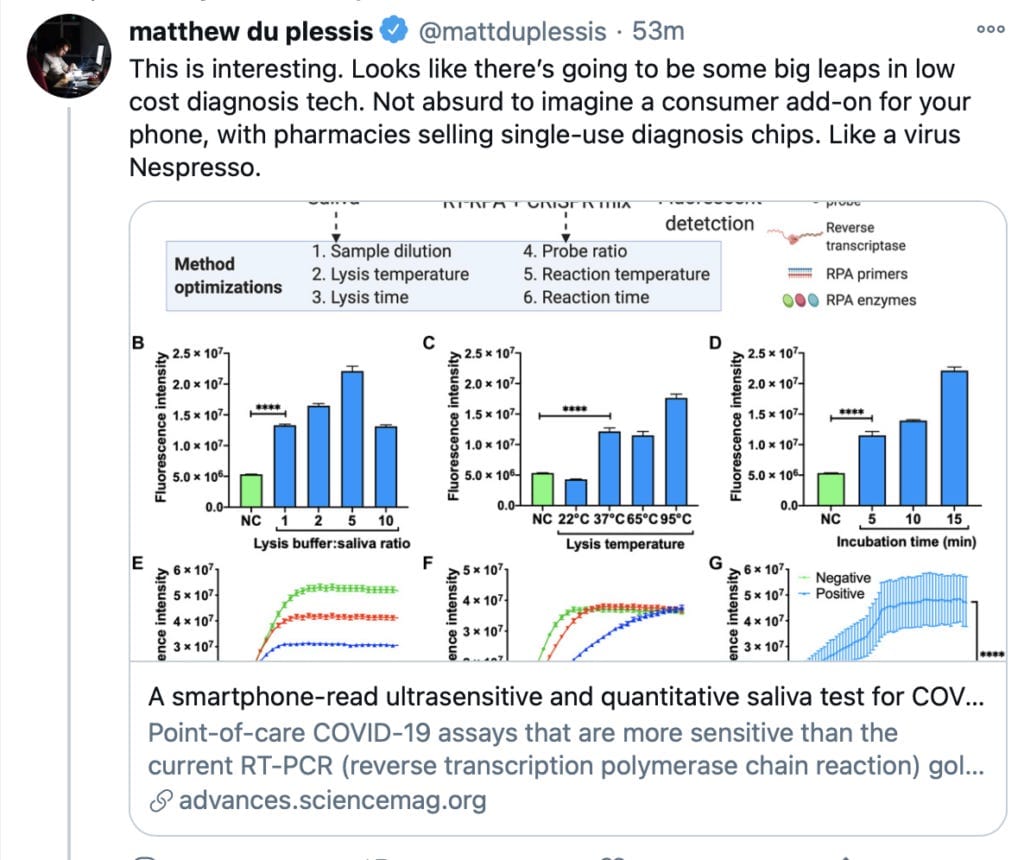
The best way to think about it? Scientists working at warp speed:

Back to corporate organizations: they learned to work at warps speed. As supply chains broke, conversations and information sharing on how to fix them exploded.
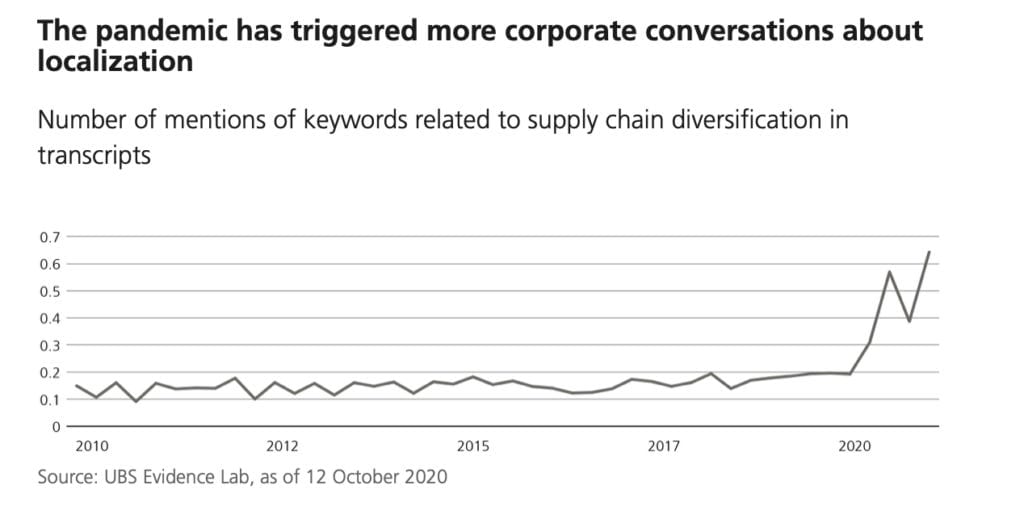
...because what was happening was overall, we were learning entirely new skills, many having to do with resilience, dealing with volatility, and fast-moving events.
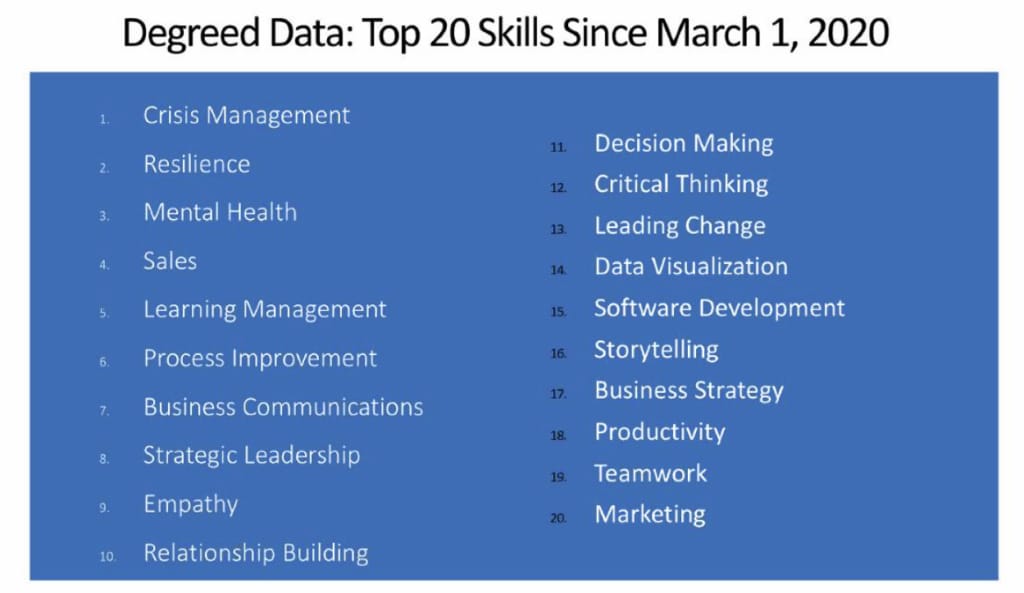
Everywhere we look, we see tremendous change!
And then, there was the world of the virtual workforce and online events. As I go back to more in-person events, I still noodle around in my virtual broadcast studio, knowing that there will be pockets of demand going forward. I do know, though, that while we learned a lot about that aspect of our world, there were experts ahead of us who were ways ahead of their time!

Still, though, our world changed, and the trend in 2023 is going to be: how do we capitalize on what we have learned, and keep that momentum going forward?
Futurist Jim Carroll believes that in years to come, we will look back at 2020-21 as the 'era of acceleration,' the period of time in which the generation of knowledge forever changed - and that those who lock in the lessons learned now will be those who will excel in the decade to come.
Start writing today. Use the button below to create your Substack and connect your publication with Jim Carroll's Daily Inspiration

